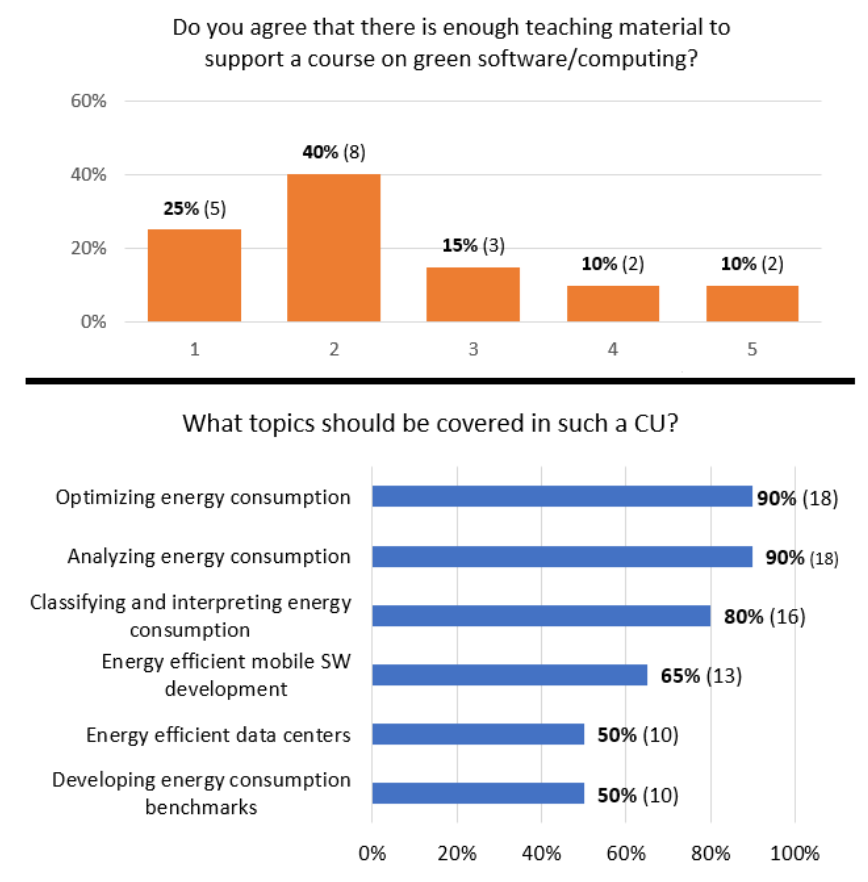Aktueller Stand
Bedeutung
...
"Nachhaltigkeit in der Informatik"?
tbd.
Versuch einer Definition nach TING-D
...
| Name | Hochschule | Ziele | Projekte | Anmerkungen |
|---|---|---|---|---|
| Hochschulgruppe Freie Software Freies Wissen (FSFW) | TU Dresden |
| tbd. | Existiert seit 2014 |
| #gnuHU | HU Berlin |
|
| Existiert seit 2017 |
| TU Dortmund |
| siehe hier | Existiert seit 2016 | |
| digitalcourage Hochschulgruppe | Bielefeld & Bayreuth |
| ||
...
Was bräuchte es?
Erkenntnisse des Papers "Bringing Green Software to Computer Science Curriculum: Perspectives from Researchers and Educators"
Saraiva, J., Zong, Z., & Pereira, R. (2021). Bringing Green Software to Computer Science Curriculum: Perspectives from Researchers and Educators. Proceedings of the 26th ACM Conference on Innovation and Technology in Computer Science Education V. 1, 498–504. https://doi.org/10.1145/3430665.3456386
- "While research in green software is rapidly increasing, several recent studies with software engineers show that they still miss techniques and tools to develop greener software"
- "In fact, all those recent studies show that academia should not only advance state-of-the-art research in green software design, but also educate software engineers towards greener software development. Obviously, this education is best provided from the very beginning of a software engineer career. Unfortunately, today’s undergraduate computer science (CS) education often fails to address our social and environmental responsibility"
- "Question: On a scale of (Highly Disagree) 1-5 (Highly Agree), do you agree that there is enough teaching material available to support a course on green software/computing?"
- "The quickly surging demand for energy efficient computing makes it no longer sufficient for traditional computer science curriculum to train our students with only performance-oriented programming skills and mindset. It is paramount to encourage students to "think green" and write greener code."
Topics covered by the master level course "Green Software Engineering" (University of Minho):
- strategic and aspect oriented programming (compute metrics and transform/refactor source code)
- monitor energy consumption (with RAPL)
- Red smalls + green refactorings (e.g. greeness of Java collections)
- Concept "Energy debt" + monitoring (with E-Debitum plugin for SonarQube)
- fault localization techniques e.g. SPELL)
- Automatic energy-aware program repair
- "We strongly recommend integrating green computing/software modules “early” and “often” to existing courses in a way that enhances what is already taught and that melds naturally in a given course."
